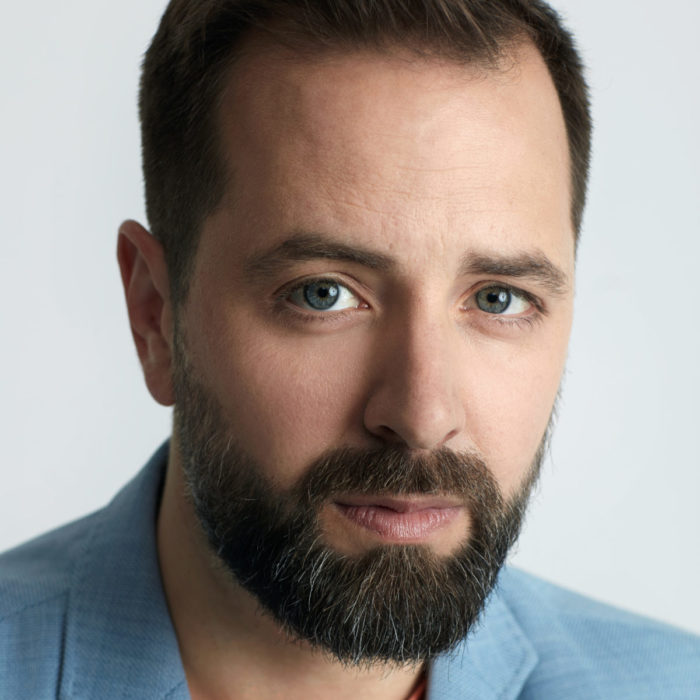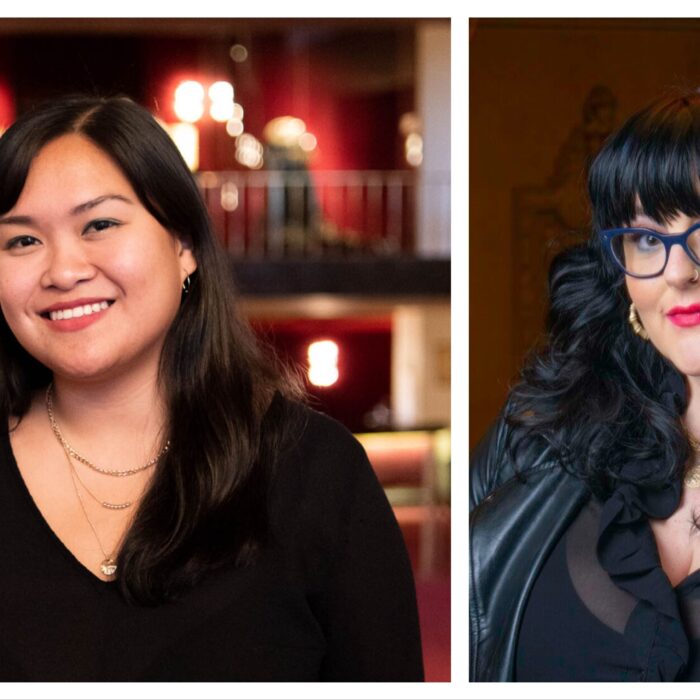
Q & A: María José Siri on Verdi, Zarzuela & the Upcoming Season
By Francisco SalazarCredit: Michele Monasta
Over the past years, María José Siri’s status in the opera world has grown due to her historical performances all around the world. At the Ópera de Palmas, she became the first soprano to encore with the company. She subsequently became the first soprano in the Arena di Verona’s history to perform both roles in “Cavalleria Rusticana” and “Pagliacci.” Adding to all this, she has also become one of the biggest champions of the verismo repertoire as well as the early Verdi operas.
This past season, the soprano made her highly anticipated debut at the Royal Opera House in “Attila” and returned to the Maggio Musicale Fiorentino for “I Due Foscari.” She was also at the Arena di Verona for “Nabucco” and for a special performance of “Aida” with Jonas Kaufmann, among other productions.
Now as she gears up for her 2022-23 season, the Uruguayan soprano is dedicating most of her season to Verdi and debuting the role of Elvira in “Ernani.” She is also set to perform zarzuela around the world.
OperaWire spoke to Siri about what the new season holds in store for her.
OperaWire: This season you are singing a lot of Verdi. Tell me a little about your schedule.
María José Siri: I will sing “Il Trovatore” first with Zubin Mehta, and then “Ernani,” which is a debut, This year I am dedicating it to Verdi because I have always wanted to sing more Verdi. At times it’s hard to coordinate the schedule but this year, I have been singing a lot of Verdi and it has made me so happy. With Elvira in “Ernani,” it is a role that I have been waiting to sing and I am really happy to finally be able to do it.
OW: You have been doing mostly early Verdi, which is known for being very difficult. Why do his early works work so well for your voice?
MJS: They are complicated. I sang “Attila” in 2016 in a production at the Teatro Comunale di Bologna. I remember saying that it was a wonderful role but I would let it rest for a while. The same thing happened with “I Due Foscari” which I debuted 11 years ago. However, I do believe one role helps the others. Abigaille, for example, made me want to revisit those roles because there was a maturity in my technique and there was another point of view. These roles are also so personal and they are very strong women.
I always find Odabella and Abigaille really interesting and Lucrezia Contarini, I can’t take her out of my head. I did it a couple of months ago and it’s still there. The same with Odabella. And they have become my favorite roles because of the music and the characters. They get the best of me.
When I debuted Odabella, I decided to debut “Norma” and that role helped me to sing “I Due Foscari” and “Nabucco.” I always try to connect everything with Bel Canto. Everyone has always said I sing Verismo and Puccini best but my technique and my studies have always been best in the Bel Canto. So I feel really good singing Verdi and I love singing his music. Viva Verdi!
OW: Tell me about Lucrezia Contarini. It is a long and challenging role known for its lengthy coloratura.
MJS: It is long but it is not heavy. If you make it heavy then that can be a problem. That is the same issue with Abigaille. You cannot give too much in the concertantes because you still have to maintain the leggero voice and flexibility for other parts.
For Lucrezia, you have to maintain flexibility. She enters and you have to sing a piano aria and for that, you have to warm the voice up and have it flexible immediately. In Attila, it’s the opposite. You enter with fireworks and then you have to sing a piano aria in the first act. You have to be able to sing forte but you also have to show a range of dynamics. Many of these scenes are intimate. You see it with Odabella, Abigaille, and Lucrezia Conatrini. It’s all about flexibility. The heaviness is in the drama not in trying to beat the orchestra with volume. And you also have to have a great orchestra and conductor.
I also must say that this character does not smile once. She is always sad and dramatic. Everything that happens to her is heavy and dramatic. That is heavy. Not the music.
OW: Talking about “Attila,” you just made your debut at the Royal Opera House this season. How was that experience, especially singing the role of Odabella?
MJS: It was amazing. It was a great experience. I had been invited but sometimes we don’t get to do everything we want. But I am thrilled to have done “Attila” and it was a complete version with no cuts. I love when we are able to sing the complete version Verdi wrote.
The double cabalettas are not always the same because they are written the same. It is not obligatory to do ornaments in the second repeat but there are colors that you can add and that is why I love doing these complete versions. I think you discover a lot when you have the chance to do it.
OW: “Nabucco” is said to be one of the most challenging roles in the repertoire. Why do you think that is the case?
MJS: It is complex because it has a number of registers, it is long, and it has so much coloratura as well as a lot of piano singing. You have to do everything. Verdi has left everything for the soprano. It is exciting but you have to be technically prepared.
Ten years ago I was offered the part but I only accepted it after I studied and I did other roles. I don’t think any role destroys your voice but you have to know how to sing it.
OW: Now after singing “Nabucco,” you’ll finally be taking on the role of Lady Macbeth, which is another one of those roles with a massive range. Tell me about your preparation.
MJS: After “Nabucco,” it was normal that I would study the role of Lady Macbeth. But it did not mean that I would sing it immediately. They are roles that take time. The character is really interesting which is the fun part. Vocally, you have to know how to study it; I study alone because I am a pianist. After that, I disconnect from the piano. But I study it in many ways. I am not always singing it. I study the other characters and all the colors that Verdi wrote. It takes form like that.
I also do not listen to anyone to not get influenced until I debut the role. After that, I will watch or listen. But I am not a person who has a huge discography. Obviously, when someone tells me to watch something, I am amazed by it and I think, “why didn’t I do it a certain way?” But that is how I am as an artist. I have my way of doing it. I am a musician and I want to leave my mark on whatever I do. That is seen in the choices I make.
In the end, I am so happy with what I am doing because I am finding a balance and I think I am in service of the music. It is very spiritual for me.
OW: You’ll be singing “Aida” this year. Can you tell me the difference between singing an early Verdi role and a later one?
MSJ: When I debuted in “Aida” which was my third role, I sang higher notes at the end of the concertante. I was studying lighter roles and for me as a young singer, it was crazy that I would sing the opera. I thought everyone was crazy and that I was entering that collective craziness. But I did it and then I left it for a few years.
After studying with Ileana Corturbas, who was able to help me find my vocal essence and who I still call to tell her how it’s going, the next “Aida” I sang was in Stuttgart. It was a very modern production and it had a different sensibility with a very different vision. I had not sung it for many years and I respected the production. From there I sang it for the first time in Italy in Zeffirelli’s production. I started working on many of the traditional ways of the opera and with maestros who knew the work very well.
For me, you sing it exactly the same but what matures is the interpretation. After singing “I Due Foscari” this season in Florence I went to Dresden to do “Aida,” and I felt very rested. The third act is complex but it was as if I had more time. I think you sing everything the same but every single composer and piece has to be performed with the rules of the style.
OW: Would you say that singing “Aida” is more natural than something like “I Due Foscari?”
MSJ: I think that roles like Lucrezia Contarini are some of the hardest Verdi wrote. I think they teach so much about singing and about how you can do it well. They bring you so much on a technical level. Lucrezia Contarini sings more than Abigaille and even Lady Macbeth in a very difficult tessitura that is always in the passagio. It is like a masterclass of singing. After singing this role, “Aida” isn’t easier but to sing “I Due Foscari,” you have to have more technical tools. In that sense, Aida is easier. And of course, I have done 25 productions of “Aida” and it is a role I already know very well.
With “I Due Foscari” when I find the key to resolve something, I then use it for “Aida.” But this is a very personal thing. There is no order in how you sing operas. Everyone’s voice is different and sometimes you do not have the choice to sing what you want. However, lately, for me, I have had the choice to sing more Verdi and master the Bel Canto style that I have been able to better as my technique and knowledge has grown.
OW: After two years of a pandemic, what does it feel to finally be able to sing to full audiences?
MSJ: Performing is so intense and during this time we realized that people need art because it gives us so much to our souls. During that time I did a lot of benefit concerts because that is also what we artists are here for. I remember doing a concert for the Arena di Verona which was stripped down to what the Arena is. The orchestra was in the middle and the chorus was distributed around the 360-degree circle. I remember singing “la Mama Morta” and I was so emotional during the rehearsals. I remember feeling like it was the first time I was singing. I was conscious that it was not but this concert was so emotional. The arena was not full during that concert but it was our job to give everyone some type of happiness.
Now every theater is full and people are excited to go back in the theater.
OW: You have a history with the Arena di Verona as you have sung here for many years. What is it like to sing in the open air and how does it differ from singing inside an opera house?
MJS: When I started I sang opera outdoors and when I sang at the Arena for the first time, I had already sung at Bregenz. I have also sung in Eygpt and many other outdoor venues. So when I moved to Verona and went to see an opera there, I was wowed. I remember my first audition for Verona and how amazing the experience was. It was magical and now I am in love with the Arena. I mean I love my profession.
Singing outdoors is always tricky because we depend on the weather. This year we got rained out in one performance. But other times we have finished at one in the morning. One time we started the third act seven times because it would rain on and off. It is not always great when it rains and it can be stressful to have to restart many times. As artists of the Arena, we are always ready and have to warm up our voices. We have to make adjustments to the temperature. This year for example was so hot. But that is the magic of Verona. Our instruments resonate outside and there is nowhere in the world like it.
OW: You will be doing Zarzuela concerts this year. Tell me about going from Verdi to this genre.
MJS: I’ll be touring with Plácido Domingo who I heard for the first time in Uruguay in a concert with winners of Operalia. At that concert, he gave a prize to Jose Solar, who sang with Maria Callas and Renata Tebaldi. I will never forget that concert and then I debuted Abigaille at the Teatro Maggio Musicale Fiorentino with Domingo. When we met he did not know I sang Zarzuela, but I sang it in Uruguay. My first stage works were singing Zarzuela Anthologies. These were concerts where we sang different numbers from different Zarzuelas. They were very exciting shows. There is actually a tradition of Zarzuela in Uruguay.
So when I sang “Nabucco” we spoke about doing Zarzuela together and I am excited to sing it because there is a side of me as an interpreter who likes comedy. Unfortunately, I have no outlet to show it in opera because the roles I sing are all tragedies. My dad always asks, “when am I going to sing a cheerful work?” And I have told my dad, that the more time passes, the less cheerful the works get. I become more dramatic and my dad says “Please no.” So Zarzuela is a way for me of having fun and getting these dramatic works out of my head.
OW: Are there any Spanish roles in the works after doing this tour?
MJS: There are plans but I need more time. What is wonderful now is that I have a lot of control over my schedule. But I need to find that space.
OW: With Zarzuela and Verdi taking up a lot of your season, what other roles are you planning for the future?
MJS: I have so many things that I want to do but there is no rush. I will be preparing “La Gioconda” which is a role that has been asked of me and I have been waiting for a long time. I will also “La Faniculla del West” which I know takes time to prepare. I would love to do French which is the repertoire I wanted to start my career with. I went to an audition to do “Manon” by Massenet and I came out with a contract for Puccini’s “Manon Lescaut.” It also happened in a German theater where I went to audition for Gilda and got Amelia for “Un Ballo in Maschera.” So I would love to do some French repertoire because my favorite opera is “Thais.” It seems unlikely because my voice has evolved in a different direction but it is a dream. I would also love to do “Le Cid.”
There is also “Turandot” which will come but not right now. I want to do a lot of Verdi for now and see what comes.


